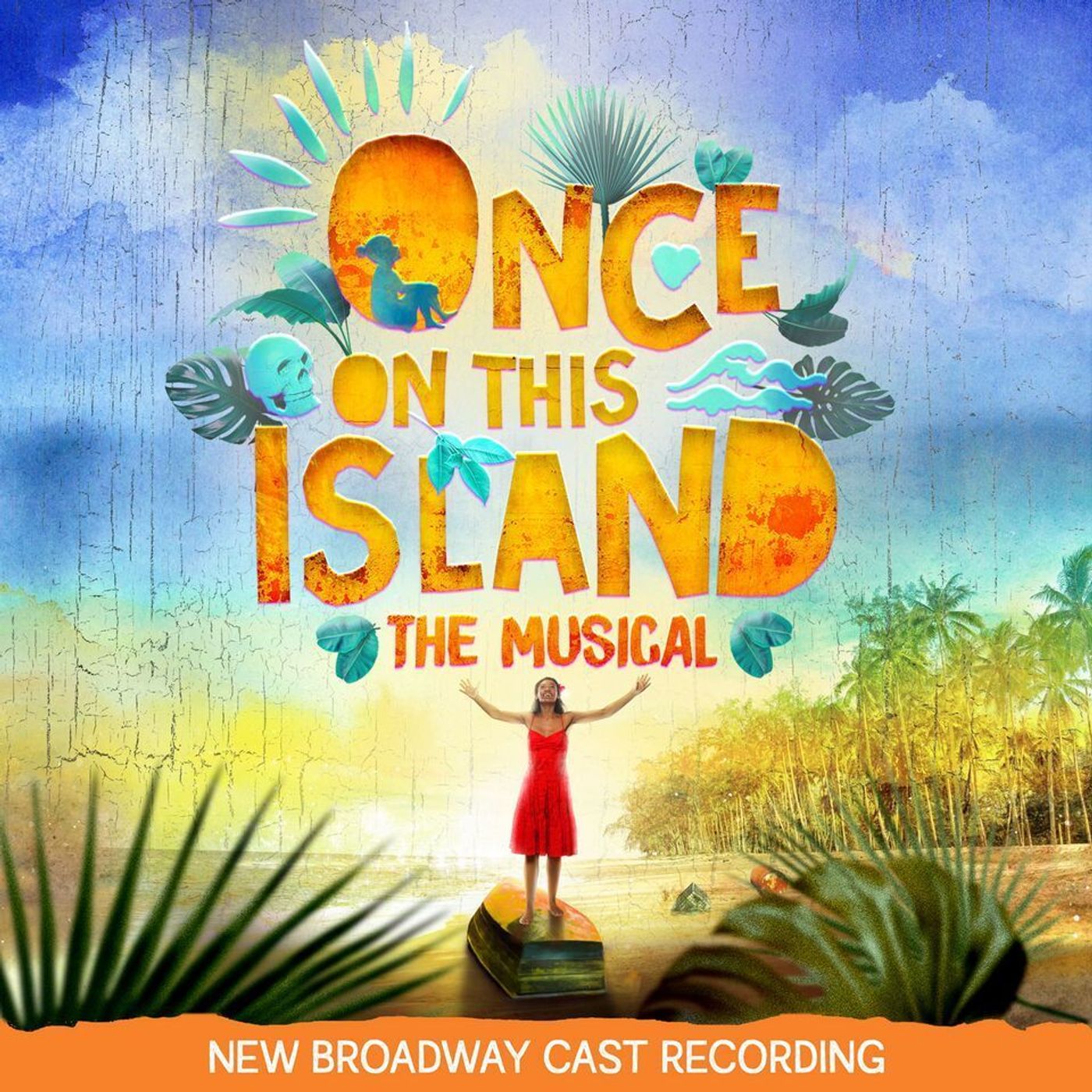BWW Album Review: ONCE ON THIS ISLAND Revives A Classic Tale

There's a certain reliability to a score by Lynn Ahrens and Stephen Flaherty. You can count on elegant orchestrations, tidy and effective lyrics, and a heartfelt yet epic tale. All of this and more can be found on the new cast recording of the revival of Once On This Island, a Caribbean-tinged fairytale about love, destiny, and sacrifice. It's a lushly produced recording that balances the voices of the chorus with quieter character moments.
In the first two tracks, "We Dance" and "One Small Girl," we are introduced to the style and structure that sets OOTI apart: its quasi-fairytale storytelling, in which the ensemble serves as a literal chorus that narrates the story, elevating it to the level of myth. This threads through the entire album, as narrative numbers are scattered throughout to move the story forward and to maintain the storybook feel. In some ways, this is a blessing for a cast recording: one of the potential pitfalls of listening to a cast album is that some of the story that audiences see on stage might get lost in translation. "Pray," "The Sad Tale of the Beauxhommes," and "Gossip" all bring society's voice into the story while also giving listeners an appealing, image-filled highlights reel to follow the story.
Within this storybook reality, though, there is a tender and small story: our heroine, Ti Moune (newcomer Hailey Kilgore, with a bright voice that's slightly unpolished in the best way), is a peasant girl with a deep sense of love and compassion who longs to spread her wings beyond the bounds proscribed by her island's rigorously divided society. Her "Waiting For Life" is yearning and full of energy, connecting us right away with this brave young girl. Her love interest, Daniel (Isaac Powell), is from the lighter-skinned, aristocratic class, and is an odd brand of fairytale prince: a romantic anti-hero whose outdated views are at odds with what we would hope from our hero; his slightly off-putting philosophy can be summed up in a line from his signature solo "Some Girls": "some girls you marry, some you love."
Perhaps we shouldn't blame Daniel entirely, though. Scattered throughout the score are reminders - in glorious songs - that the gods of this myth are the ones who have triggered the whole thing. And in some cases, they nearly steal the show from the humans they watch over and manipulate. Lea Salonga's voice is as exquisite as ever, soaring on "The Human Heart" as Erzulie, goddess of love, while her counterpart, Papa Ge (Merle Dandridge), demon of death, lends her fierce vocals to the love-duet-turned-threat "Forever Yours" and its even darker reprise. It's Alex Newell, though, who gets a star turn as Asaka, the Earth mother, belting out "Mama Will Provide" with the power and charisma of, well, a god.
Once On This Island may be a tale of gods and myth, but its score also highlights some incredibly relatable, small, human moments. On "Ti Moune," her parents (Kenita R. Miller and Philip Boykin" capture the sadness and inevitability of every parent who knows their child will eventually leave. "What can I say to stop you now, now that you've heard your drums?" her mother sings, and it's such a pure distillation of that bittersweet moment of growing up or seeing a child grow up that it brought me to tears. On a different kind of love, Ti Moune and Daniel's duet "Forever Yours" is that classic musical-theatre staple of which West Side Story's "Somewhere" is the gold standard: young, idealistic lovers imagining a better, kinder world, breaking our hearts as we sense that that world will never come.
Across the board, the vocals and orchestration on this album are top-notch, drawing us into the highly specific world where the French Antilles meet a magical fairytale, where Caribbean rhythms and American musical theatre conventions converge on a tale that is both mythologically grand and humanistically small. So "why do we tell the story?" Because, as the lyric goes, "our lives become the stories that we weave."
Reader Reviews
Videos

